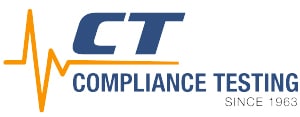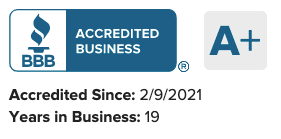Get Free Help From Our Engineers With CE Compliance for Electronics
Need help getting the CE mark for your electronic device? We work with businesses and individuals worldwide, including in the United Kingdom, to achieve compliance with CE conformity requirements and get the CE mark for your device.
Click the “Talk to Our Team” button or call us on 866-540-5287 to ask our engineers your question about CE compliance for electronics, or request a free quote for testing and achieving the CE mark for your device.

The CE marking, which is recognizable by its distinct “CE” logo, is a mandatory conformity mark that’s required for products sold in the European Economic Area (EEA). The marking signifies a product complies with EU safety, health and environmental protection standards.
In a way, the CE marking acts as a “passport” for your device or other product, allowing it to go on sale not just in one European country, but in all European Union member states and Iceland, Liechtenstein and Norway (non-EU countries that are part of the EEA).
Our list of countries that require the CE mark provides a complete list of countries in which you can market your device after achieving CE compliance.
If you’re an electronic device manufacturer, it’s important to understand what the CE marking is, as well as the key role it plays in accessing the EU market. It’s also important to understand the limitations of the CE mark, including when it isn’t required for electrical devices.
Below, we’ve explained what the CE marking is, as well as why it’s required for devices sold in the European Economic Area.
We’ve also discussed situations in which acquiring the CE mark may not be necessary for your device.
For more information about CE compliance, or to request a quote for CE testing, contact us via email or call us at 866-540-5287.
What is the CE Marking?
The CE marking, or CE mark, is a logo that’s placed on products to indicate that they have met the standards set by the European Commission. It stands for Conformité Européenne, which is French for “European Conformity.”
In total, there are 23 directives established by the European Commission. These directives set standards that apply to products sold within the European Economic Area, including electronic devices and equipment.
Acquiring the CE mark for your device involves completing CE testing with an accredited testing lab, submitting a Declaration of Conformity (DoC), and affixing the CE mark to your product and its packaging.
Almost all electronic devices sold in the EEA need the CE mark. However, there are some rare cases in which a CE mark may not be required for a product to go on sale in Europe.
When is CE Marking Not Required?
The European Union’s conformity directives have a broad application. However, there are some situations in which a CE marking isn’t required.
Products Sold Outside the European Economic Area
With some exceptions, the CE marking is only required for products sold within the European Economic Area. If you plan to market your electronic device in the United States, for example, there is no requirement to comply with European Union standards and receive a CE mark.
One exception to this rule is Turkey, which despite not being a member of the European Union or European Economic Area, requires a CE marking for certain products due to its membership in the European Customs Union.
Although many countries do not require CE marking for electronic devices, most have their own electromagnetic compatibility and safety standards. In the United States, electronic devices are regulated by the Federal Communications Commission (FCC) via the FCC Part 15 rules.
Products Not Covered by CE Directives
Not all product categories are subject to CE directives. Many types of specialized equipment or custom-made machines used for research do not fall under the scope of CE directives, and as such, are not required to carry a CE mark.
If you believe your device may not be covered by any CE directives, it’s important to consult a compliance specialist before entering the EU/EEA market. The EU regularly takes legal action against non-compliant items, including fines and the withdrawal of products from the market.
Prototype Products and Devices
CE marking is not required for prototype devices. If your product is in the design, prototype or development phase and isn’t yet ready for the consumer or industrial market, it may not need CE marking to be used in the European Economic Area.
However, the CE marking may be required if your prototype device is used in public or outside of a testing environment. Contact us for more information about when CE marking is required for electrical device prototypes.
Products for Personal Use
Electronic devices and other products manufactured for personal use and not intended for the market typically do not require CE marking. However, if you intend to later market your device, completing CE testing and obtaining a CE mark is required.
Antiques and Art Pieces
Items classified as antiques and/or art pieces do not need CE marking to go on sale within the European Economic Area. These items are typically viewed as outside the scope of directives that mandate CE marking and compliance.
Custom Machinery for Specific Purposes
Almost all electronic devices, including consumer and industrial equipment, require a CE mark in order to go on sale in the EEA. However, some devices made solely for professional use on an extremely limited scale may be exempt from CE directives.
Exemptions to CE compliance are rare, and it’s important to talk to a compliance expert if you plan to manufacture any device for the European market, even if it’s used only on a very small scale.
Products With Other Specific Markings
In some cases, products may be regulated by other European or international conformity marks, potentially exempting them from the need for a CE mark. For example, some medical devices or other items may have specific regulations that are required for access to the EEA market.
As with other product categories, exemptions are generally rare, and it’s important to talk with a compliance expert before entering any market with a new device.
Talk to Our Team About CE Testing & Compliance
Completing CE testing and receiving a CE mark for your device is a key step in entering into the European market. Having a CE mark confirms that your device conforms with European product requirements and regulations, protecting you from fines and other legal action.
It’s also an important indicator of quality that demonstrates to consumers, both in Europe and in other parts of the world, that you’re committed to producing high quality products.
As an accredited testing lab, we’ve helped hundreds of electronic device manufacturers achieve CE compliance for their devices and enter the European Economic Area market. From testing to a Declaration of Conformity, our experienced team can help you with every step in the process.
To request a quote for testing your device, or to talk to our engineers and compliance specialists about CE testing and compliance, contact us online or call us at 866-540-5287.
Request a Free Quote From Our Team
Please enter your name, contact information, and any information about your device and the type of testing you need into the form below. Our team of engineers and compliance specialists will contact you as soon as possible with a free quote for your project.




